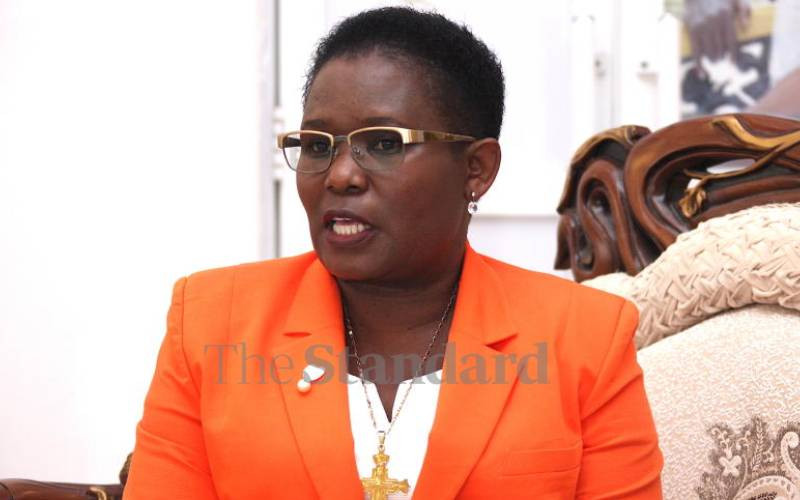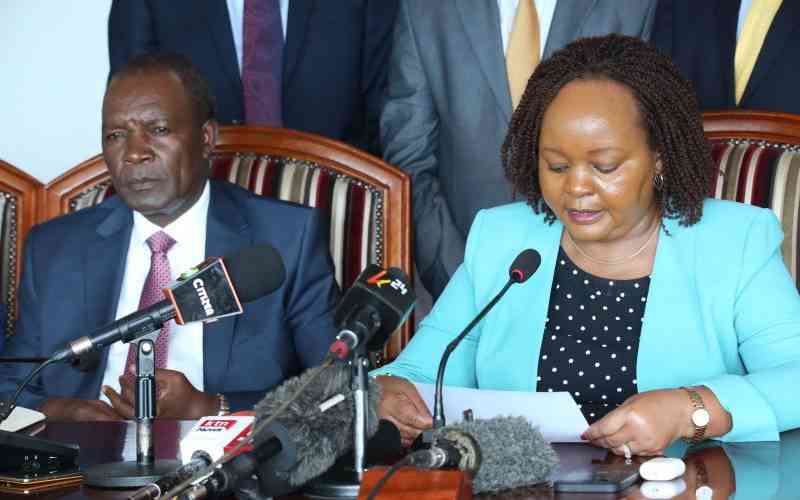The Ipsos poll detailing the public’s views on the Constitution and particularly on devolution were gratifying to many of us who recognise the fundamental way in which the new law has transformed Kenya for the better. What is amazing is that the overwhelming support for the Constitution and for devolution comes despite the incessant reports on the Constitution’s and devolution’s alleged defects.
This has been the month of the health crisis, when health workers went on strike demanding salaries and promotions. There were accompanying loud calls to take health back to the national government. I am always amazed that people make such proposals without batting an eyelid while newspapers abound with reports of the significant challenges facing the national government in functions it has not devolved, including education, security including the referral hospitals! I would for example support the clamour for roll back of health if non-devolved education was doing splendidly and the national government’s referral hospitals at Kenyatta and Moi were offering services with excellence.
The converse is true. The reality is that the challenges that affect the counties have little to do with counties as such but are problems of governance and management at both levels.
Back to counties, the Ipsos poll comes at a time when the damning audit reports on the county financial management are still live memories. The MCA fights in Makueni, Machakos and Kisumu occurred not too long ago. At the national level, the jurisdictional fights between various institutions continue, thereby prejudicing critical reform programmes. Insecurity continues to terrorise Kenyans. It is no wonder then that listening to many on the social media platforms, there is a view that we made a monumental error in changing our governance framework.
This Constitution, it is pontificated, is too expensive, too idealistic, too civil society laden and not cast in reality. Indeed had you not been in Kenya before 2010 you would imagine we were doing so well until this Constitution came to subvert our positive trajectory.
Let me emphasise that I am not so woolly-eyed that I am not aware of the Constitution’s challenges; it has several. The increasing autocracy of Parliament and the failure to imbue the principles of integrity and accountability in governance, all these are real challenges. Devolution has many defects, including the overwhelming numbers of rapacious MCAs and the failure to attach much focus on improving service delivery as opposed to investing in vote-friendly projects.
But on the whole, the Constitution and devolution have continued to deliver and the people in the mashinani know that. The problem is that the conversation on the Constitution and devolution is largely owned and driven by a middle class which I am now convinced is many times out of touch with the reality of Kenya. Secondly, because the middle class did not suffer as much from the dysfunctional Kanu regime, we do not realise just how important the movement to a new framework meant to other Kenyans. It’s not that Kenyans don’t see the challenges of the current framework, it’s that they have lived through the hopelessness of yesteryear. These Kenyans are the majority of 78 per cent reported by Ipsos.
One of the realities the middle class fails to recognise is that but for this Constitution this country would inevitably have headed to civil war, ICC notwithstanding; we are seeing civil war in many parts of Africa, despite the threat of ICC! What has helped us move forward are new principles of equity in resource allocation, new structures of governance including devolution, strengthened institutions, including the Judiciary, and a less imperial Presidency.
The challenge for us in the next few years is to consolidate the gains we have had so far and learn from the mistakes we have made. One, for instance, hopes the next elections will produce more credible leadership at the National and County levels so as to move us forward.
We must empower the people more with civic education so that they can effectively participate in governance. We must reform our institutions so that they deliver. But unlike the Children of Israel in Numbers 14, we must never long for the slavery of Egypt so we can eat cucumber and garlic.
 The Standard Group Plc is a
multi-media organization with investments in media platforms spanning newspaper
print operations, television, radio broadcasting, digital and online services. The
Standard Group is recognized as a leading multi-media house in Kenya with a key
influence in matters of national and international interest.
The Standard Group Plc is a
multi-media organization with investments in media platforms spanning newspaper
print operations, television, radio broadcasting, digital and online services. The
Standard Group is recognized as a leading multi-media house in Kenya with a key
influence in matters of national and international interest.
 The Standard Group Plc is a
multi-media organization with investments in media platforms spanning newspaper
print operations, television, radio broadcasting, digital and online services. The
Standard Group is recognized as a leading multi-media house in Kenya with a key
influence in matters of national and international interest.
The Standard Group Plc is a
multi-media organization with investments in media platforms spanning newspaper
print operations, television, radio broadcasting, digital and online services. The
Standard Group is recognized as a leading multi-media house in Kenya with a key
influence in matters of national and international interest.







